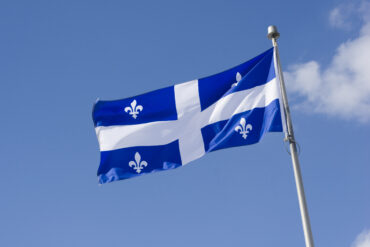Manitoba’s 2019 budget was announced on March 7 and featured the delivery of a campaign promise to cut the provincial sales tax to seven percent, a one percentage point reduction.
Manitoba PST Reduction:
The seven percent rate will be effective July 1, 2019 and comes exactly six years to the day after the former NDP announced the unpopular increase to eight percent, an issue RCC fought vociferously, alongside other Manitoba business groups and citizens.
- The change will put more than $300 million back into the hands of Manitobans annually, and will especially be felt by households making large purchases, and businesses who have PST costs within their supply chain.
- As of July 1, Manitoba will have the third lowest PST rate across the country, next to Alberta (no PST) and Saskatchewan (6 percent), and on par with British Columbia (7 percent).
- Since 2013 RCC has been a leading voice of opposition to the increase of Manitoba’s PST. RCC was also instrumental in ensuring the PC election platform lead off with this pledge to return it to seven percent. On budget day Premier Selinger thanked RCC for its advocacy on this issue.
Other Budget Highlights:
- Budget 2019 forecasts a summary deficit of $360 million for the 2019-2020 fiscal year, down from $470 million deficit that was projected in Budget 2018. The Government remains committed to eliminating the deficit by the end of their second term in 2024.
- Budgeted expenses have been held to 0.3% on a budget-to-budget basis, the smallest increase in 20 years, in part supported by the growth in federal transfers. Federal transfers are expected to increase by $319 million in 2019, roughly equivalent of the impact of the PST reduction.
- At the end of the coming fiscal year, the provincial debt is expected to rise to $26.1 billion, up $902 million from 2018-19. The increase is due to the $360-million deficit as well as $542 million in debt-financed capital spending.
- Among provincial departments, the big winner was education with a six percent increase, while health drops modestly by slightly less than two percent.
- Consistent with Budget 2018, the Government included no Cannabis related revenues, maintaining that the costs of health care and oversight remain more than the income earned from their wholesale operations.
Manitoba Carbon Tax:
During the 2018 budget the Manitoba government announced its “Made in Manitoba” fixed rate $25 per tonne carbon tax that was expected to go into effect this year.
Following a dispute with the Federal government, Manitoba pulled its plan and the Federal Carbon price will now be applied in the province, starting at $20 per tonne on April 1, 2019 and escalating $10 per tonne annually until 2022.
Federal Carbon Tax Rates Applied in Manitoba on Fuels (2019-2022)
| Fuel Type | 2019 | 2020 | 2021 | 2022 |
| Gasoline (c/L) | 4.42 | 6.63 | 8.84 | 11.05 |
| Natural Gas (c/m3) | 3.91 | 5.87 | 7.83 | 9.79 |
| Diesel (c/L) | 5.37 | 8.05 | 10.73 | 13.41 |
Next Steps:
- The next Manitoba election is scheduled for Oct. 6, 2020; however Premier Pallister has not ruled out calling an earlier vote, potentially for later this spring, ahead of the Federal election. The Conservatives continue to maintain a strong lead in opinion polls and fundraising and would be well positioned to retain a solid majority.
- RCC will continue to work with the Manitoba government to ensure a smooth transition of this PST reduction, as well as continue to advocate for a broader review of the overall tax and regulatory pressures Manitoba retailers face.
If you have any questions or concerns, please do not hesitate to contact:
John Graham, Director, Government Relations (Prairie Region) at 204-926-8624 or jgraham@retailcouncil.org.



